[vc_row][vc_column width=»1/1″][vc_single_image image=»3585″ border_color=»grey» img_link_target=»_self» img_size=»full»][/vc_column][/vc_row][vc_row][vc_column width=»2/3″][vc_column_text]
Proyecto Promise
PROMISE (Promoting Youth Involvement and Social Engagement) es un Proyecto de Investigación financiado por la UE (Programa Marco Horizonte 2020) a ejecutar entre Mayo de 2016 y Abril de 2019 por 12 instituciones (en Estonia, Finlandia, Alemania, Italia, Portugal, Eslovaquia, España, la Federación Rusa, Croacia y el Reino Unido). El proyecto es financiado por el Programa Marco para Investigación e Innovación de la Unión Europea Horizonte 2020, propuesta no. 693221.[/vc_column_text][vc_accordion collapsible=»yes» active_tab=»false»][vc_accordion_tab title=»Objetivos del Proyecto»][vc_column_text]
Muchos jóvenes van a la cabeza en las nuevas tendencias sociales, culturales y políticas, sirviéndose de su energía y creatividad, pero también desde la frustración ante los desafíos que afrontan. PROMISE quiere investigar las respuestas de los jóvenes a estos desafíos, y busca maneras de transformarlas en mejoras sociales. Con un mayor entendimiento de las experiencias, valores y actitudes de los jóvenes europeos, PROMISE estudia los obstáculos y oportunidades para su participación social.
PROMISE busca comprender y ampliar el rol de los jóvenes en el cambio social. Para ello, se acerca con especial atención los jóvenes que realizan iniciativas atípicas, y con frecuencia “en conflicto” con las autoridades y normas vigentes. Jóvenes con comportamientos irregulares o informales a la hora de trazar su papel en la sociedad, suscitan a menudo respuestas negativas y penalizadoras en las autoridades, lo que trae consigo marginalización y estigmatización. Estos desencuentros reducen las posibilidades de participación de los jóvenes, y como consecuencia, buena parte de su creatividad, innovación y energía queda desaprovechada. PROMISE asume que entre los jóvenes “en conflicto” existen oportunidades relevantes para el cambio social, lo que convierte su situación en área de vital interés para políticos y expertos.
[/vc_column_text][/vc_accordion_tab][vc_accordion_tab title=»Aproximación metodológica»][vc_column_text]A través de métodos de investigación cualitativa y etnográfica, PROMISE explicará con detalle maneras alternativas de participación e innovación juvenil. Además, PROMISE busca involucrar a los jóvenes en todas las fases de la investigación, con herramientas participativas como las técnicas de elicitación fotográfica, y un uso intensivo de las redes sociales. Dándoles espacio para diseñar la agenda, documentar sus circunstancias y expresar sus necesidades. El proyecto recogerá también datos cuantitativos para analizar las diferencias de actitudes y comportamientos entre los jóvenes europeos.[/vc_column_text][/vc_accordion_tab][/vc_accordion][posts header=»Notícias Promise España» post_type=»post» cats=»promise-es» images=»false» image_width=»383″ image_height=»170″ image_wrap=»false» hard_crop=»true» cols=»1″ per_page=»3″ offset=»0″ link=»both» pages=»true» orderby=»date» order=»desc» content_display=»excerpt» excerpt_length=»250″ read_more=»true» title=»true» title_length=»500″ meta=»true» meta_author=»true» meta_date=»true» meta_cats=»false» meta_tags=»false» score=»true» spacing=»spacing-normal»][vc_column_text]
Equipo español
PROMISE involucra a equipos de investigación de 12 organizaciones diferentes de toda Europa. El proyecto es coordinado por la Universidad de Manchester. Los miembros del equipo español son:[/vc_column_text][vc_accordion collapsible=»yes» active_tab=»false»][vc_accordion_tab title=»Zyab Ibañez»][vc_column_text] Zyab Ibañez is a Postdoctoral Researcher at the Institute of Government and Public Policies (IGOP) of the Universitat Autònoma Barcelona. He holds a PhD in Political and Social Sciences from the European University Institute, Florence 2007, and an MSc in Environmental Assessment from the London School of Economics. His research combines cross-national institutional analyses and organizational case-studies to explore how different institutional regimes shape the design and implementation of public policies in the areas of employment, working-time and migration. As a researcher, he has been involved in several EU and National funded projects, such as RECWOWE and Mobile Identities. Currently he is part of the IGOP team undertaking the project: Promoting Youth Involvement and Social Engagement (PROMISE), a major EU funded research project, under the European Commission’s Horizon 2020 Research and Innovation Programme, running from May 2016 to April 2019.[/vc_column_text][/vc_accordion_tab][vc_accordion_tab title=»Margarita León»][vc_column_text]
Zyab Ibañez is a Postdoctoral Researcher at the Institute of Government and Public Policies (IGOP) of the Universitat Autònoma Barcelona. He holds a PhD in Political and Social Sciences from the European University Institute, Florence 2007, and an MSc in Environmental Assessment from the London School of Economics. His research combines cross-national institutional analyses and organizational case-studies to explore how different institutional regimes shape the design and implementation of public policies in the areas of employment, working-time and migration. As a researcher, he has been involved in several EU and National funded projects, such as RECWOWE and Mobile Identities. Currently he is part of the IGOP team undertaking the project: Promoting Youth Involvement and Social Engagement (PROMISE), a major EU funded research project, under the European Commission’s Horizon 2020 Research and Innovation Programme, running from May 2016 to April 2019.[/vc_column_text][/vc_accordion_tab][vc_accordion_tab title=»Margarita León»][vc_column_text] Margarita León is Professor of political science at the Autonomous University of Barcelona. Of the 2010 to 2015 He was a researcher in the Ramón y Cajal Institute of Government and public policy (IGOP) of this University. He has been Professor of comparative public policy at the University of Kent (2004-2010) and Marie Curie researcher at the European University Institute of Florence. He received his Ph.d. at the London School of Economics with a grant from the V framework programme of the European. Account in addition, with a master’s degree in Sociological Research by the University of Essex (1995) and a Bachelor’s degree in Sociology from the University of Alicante (1994). He has published articles in numerous journals of international impact ’. Is co-editor along with Ana M. Guillén of the book The Spanish Welfare State in European Context (Ashgate, 2011) and editor of The Transformation of Care in European Societies (Palgrave, 2014). His main areas of research are comparative public policy and the reform of the ’ welfare State. He is a member of the Executive Committee of the European social Policy Network (ESPAnet) and of the Spanish network of Social policy (REPS).
Margarita León is Professor of political science at the Autonomous University of Barcelona. Of the 2010 to 2015 He was a researcher in the Ramón y Cajal Institute of Government and public policy (IGOP) of this University. He has been Professor of comparative public policy at the University of Kent (2004-2010) and Marie Curie researcher at the European University Institute of Florence. He received his Ph.d. at the London School of Economics with a grant from the V framework programme of the European. Account in addition, with a master’s degree in Sociological Research by the University of Essex (1995) and a Bachelor’s degree in Sociology from the University of Alicante (1994). He has published articles in numerous journals of international impact ’. Is co-editor along with Ana M. Guillén of the book The Spanish Welfare State in European Context (Ashgate, 2011) and editor of The Transformation of Care in European Societies (Palgrave, 2014). His main areas of research are comparative public policy and the reform of the ’ welfare State. He is a member of the Executive Committee of the European social Policy Network (ESPAnet) and of the Spanish network of Social policy (REPS).
More info: https://uab.academia.edu/MargaritaLeon[/vc_column_text][/vc_accordion_tab][vc_accordion_tab title=»Gabriela de Carvalho»][vc_column_text] PhD student in Politics, Policies and International Relations at the Universitat Autònoma de Barcelona (Spain). She holds a Bachelor’s degree in International Relations from the Escola Superior de Propaganda e Marketing/Brasil (ESPM), a Master’s of Science in Latin American Development from King’s College London and a Master’s of Arts degree in Political Science from the Universitat Autònoma de Barcelona. Gabriela’s research interests are in social investment policies, conditional cash transfer programmes, poverty and social inequalities, focusing on Latin American experiences. In addition, she is also interested in the study of quantitative and qualitative methodologies applied to the Social Sciences.[/vc_column_text][/vc_accordion_tab][vc_accordion_tab title=»Lara Maestripieri»][vc_column_text]
PhD student in Politics, Policies and International Relations at the Universitat Autònoma de Barcelona (Spain). She holds a Bachelor’s degree in International Relations from the Escola Superior de Propaganda e Marketing/Brasil (ESPM), a Master’s of Science in Latin American Development from King’s College London and a Master’s of Arts degree in Political Science from the Universitat Autònoma de Barcelona. Gabriela’s research interests are in social investment policies, conditional cash transfer programmes, poverty and social inequalities, focusing on Latin American experiences. In addition, she is also interested in the study of quantitative and qualitative methodologies applied to the Social Sciences.[/vc_column_text][/vc_accordion_tab][vc_accordion_tab title=»Lara Maestripieri»][vc_column_text] Lara Maestripieri is postdoc grantee at the Department of Political and Social Sciences at the University of Pavia, where she works as research fellow in the EU funded project CRESSI – Creating Economic Space for Social Innovation. From 2011 to 2014, she has been appointed as research fellow in the UE funded project FLOWS and WILCO (Laboratory of Social Policies – Polytechnic of Milan), working respectively on local welfare policies favouring women’s labour market participation and tackling youth’s marginalisation. In 2015, she has received a grant from Giangiacomo Feltrinelli Foundation to study determinants of over-education among young Italian workers. She is adjunct professor in “Methodology for Social Sciences”, University of Pavia, Pavia. She holds a PhD in Sociology and Social Research from the University of Trento (2011) and a MA in Applied Social Sciences – specialisation in Social Research Methods from the Catholic University of Milano (2006). In 2017, she will be appointed as Marie Skłodowska-Curie fellow at the Institute of Government and Public Policies (IGOP) of the Universitat Autònoma Barcelona, studying gender and social vulnerability in an intersectional perspective. Main interests of research are focused on labour transformation in the post-industrial society, and in particular: marginalised groups on the labour markets (migrants, women and young); gender and social vulnerability; emerging professions. Her most recent publications include: Maestripieri, L. Kaseauru K. and Ranci C. (2016) The impact of labour-market participation, family structure and local welfare systems on the economic insecurity of women, European Societies; Maestripieri, L. (2016) Professionalization at work: The case of Italian management consultants, Ephemera: theory and politics in organization, 16(2): 31-52; Cucca R. and Maestripieri L. (2016) “Varieties of post-Fordist transitions and labour market inequalities” in Cucca R. and Ranci C. (eds) Unequal cities. Abingdon and New York: Routledge, 21-44. She is representative of Early Career Researchers in the board of the ISA RC 52 “Sociology of Professional Groups” and she is part of the editorial staff of Italian Society for Economic Sociology website ([http://www.sociologia-economica.it)/]www.sociologia-economica.it).[/vc_column_text][/vc_accordion_tab][vc_accordion_tab title=»Joan Subirats»][/vc_accordion_tab][vc_accordion_tab title=»Clara Rubio»][vc_column_text]
Lara Maestripieri is postdoc grantee at the Department of Political and Social Sciences at the University of Pavia, where she works as research fellow in the EU funded project CRESSI – Creating Economic Space for Social Innovation. From 2011 to 2014, she has been appointed as research fellow in the UE funded project FLOWS and WILCO (Laboratory of Social Policies – Polytechnic of Milan), working respectively on local welfare policies favouring women’s labour market participation and tackling youth’s marginalisation. In 2015, she has received a grant from Giangiacomo Feltrinelli Foundation to study determinants of over-education among young Italian workers. She is adjunct professor in “Methodology for Social Sciences”, University of Pavia, Pavia. She holds a PhD in Sociology and Social Research from the University of Trento (2011) and a MA in Applied Social Sciences – specialisation in Social Research Methods from the Catholic University of Milano (2006). In 2017, she will be appointed as Marie Skłodowska-Curie fellow at the Institute of Government and Public Policies (IGOP) of the Universitat Autònoma Barcelona, studying gender and social vulnerability in an intersectional perspective. Main interests of research are focused on labour transformation in the post-industrial society, and in particular: marginalised groups on the labour markets (migrants, women and young); gender and social vulnerability; emerging professions. Her most recent publications include: Maestripieri, L. Kaseauru K. and Ranci C. (2016) The impact of labour-market participation, family structure and local welfare systems on the economic insecurity of women, European Societies; Maestripieri, L. (2016) Professionalization at work: The case of Italian management consultants, Ephemera: theory and politics in organization, 16(2): 31-52; Cucca R. and Maestripieri L. (2016) “Varieties of post-Fordist transitions and labour market inequalities” in Cucca R. and Ranci C. (eds) Unequal cities. Abingdon and New York: Routledge, 21-44. She is representative of Early Career Researchers in the board of the ISA RC 52 “Sociology of Professional Groups” and she is part of the editorial staff of Italian Society for Economic Sociology website ([http://www.sociologia-economica.it)/]www.sociologia-economica.it).[/vc_column_text][/vc_accordion_tab][vc_accordion_tab title=»Joan Subirats»][/vc_accordion_tab][vc_accordion_tab title=»Clara Rubio»][vc_column_text] Clara Rubio Ros es doctora en Antropología Social por la Universitat de Lleida, tiene un Máster en Juventud y Sociedad por la Universitat de Girona y es licienciada en Pedagogía y en Antropología Social y Cultural por la Universitat Autònoma de Barcelona. También ha sido investigadora invitada en The Royal Anthropological Institute y en la Open University. Sus áreas de investigación son: juventud, migración, movimientos sociales y las adscripciones identitarias; y actualmente es miembro de los grupos de investigación de JOVIScom (Universidad Pompeu Fabra) y de Ciutadanies (Instituto Catalán de Antropología). Trabaja como investigadora post-doctoral en el IGOP dentro del proyecto PROMISE sobre participación juvenil. Su publicación más reciente es “Catalan university students and their previous and prospective experiences abroad: answering the wh-questions in a context of economic crisis” en el Journal of Contemporary European Studies.[/vc_column_text][/vc_accordion_tab][/vc_accordion][/vc_column][vc_column width=»1/3″ css=».vc_custom_1487684437608{background-color: #cecece !important;}»][vc_column_text]Enlaces
Clara Rubio Ros es doctora en Antropología Social por la Universitat de Lleida, tiene un Máster en Juventud y Sociedad por la Universitat de Girona y es licienciada en Pedagogía y en Antropología Social y Cultural por la Universitat Autònoma de Barcelona. También ha sido investigadora invitada en The Royal Anthropological Institute y en la Open University. Sus áreas de investigación son: juventud, migración, movimientos sociales y las adscripciones identitarias; y actualmente es miembro de los grupos de investigación de JOVIScom (Universidad Pompeu Fabra) y de Ciutadanies (Instituto Catalán de Antropología). Trabaja como investigadora post-doctoral en el IGOP dentro del proyecto PROMISE sobre participación juvenil. Su publicación más reciente es “Catalan university students and their previous and prospective experiences abroad: answering the wh-questions in a context of economic crisis” en el Journal of Contemporary European Studies.[/vc_column_text][/vc_accordion_tab][/vc_accordion][/vc_column][vc_column width=»1/3″ css=».vc_custom_1487684437608{background-color: #cecece !important;}»][vc_column_text]Enlaces

http://www.promise.manchester.ac.uk[/vc_column_text][vc_separator color=»grey»][vc_wp_rss items=»4″ options=»show_author,show_date» title=»Promise news» url=»http://www.promise.manchester.ac.uk/en/feed/»][vc_separator color=»grey»][vc_column_text]
Estudios de Caso
Autoconstrucción en la escuela de diseño de Moratalaz (Spanish)[/vc_column_text][/vc_column][/vc_row]










